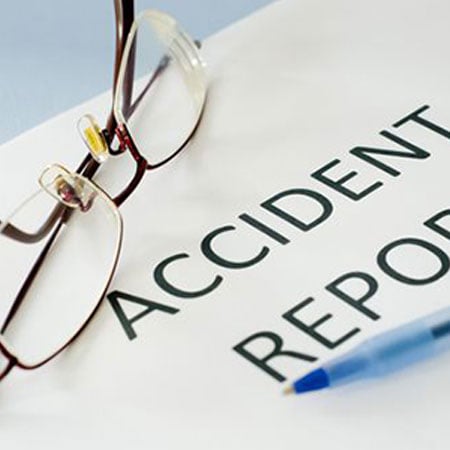

In my opinion, as an experienced attorney handling Jones Act cases for over a decade, the accident report in Jones Act claims is a key component to winning your case. It is absolutely crucial that you make sure a written accident report is prepared if you are injured on the job on any type of vessel covered by the Jones Act, including:
- Supply boats
- Tugboats
- Barges
- Cargo ships
- Floating offshore rigs, like jack-up and semi-submersible rigs
There are a lot of reasons why you want to make sure that your injury and accident are officially reported, but it really comes down to three major things: proof of your accident, documentation of what happened, and adherence to your employer’s own policies. Here’s what you should understand.
Proof
If you don’t make sure a written accident report is prepared after your injury, the company will likely claim your accident never happened. They will say you are making it up. Then, when you try to recover your “maintenance & cure” benefits or assert a Jones Act claim, your company will deny your claim and pay you nothing. Your company may even refuse to pay for any medical treatment for your injuries.
Documentation
Another reason to ensure a proper accident report is prepared is so you can document how your accident happened, as well as document any safety issues that contributed to the accident or your injuries. As time passes, memories fade. If you document safety issues soon after your accident happens, then these important matters will not be forgotten. If you end up filing a Jones Act lawsuit, a thorough accident report will go a long way towards helping your case.
Employer Policy
Also, almost every maritime employer has a rule that says you must complete an accident report for each injury, no matter how minor the injury may be. Now, in actual practice, supervisors often persuade injured workers not to file an accident report. However, if you agree not to prepare an incident report, and then you make a Jones Act claim, the company will turn around and say you failed to follow their safety rules which required you to complete an accident report.
The bottom line is this: if you are injured on the job, no matter how minor or major the incident or injuries are, always make sure an accident report is prepared.
My Supervisor Talked Me Out of Filling Out an Accident Report. Can I Still Pursue a Jones Act Claim?
If you don’t report an accident immediately, it can make pursuing a Jones Act claim difficult—or even impossible. Your boss may give you a hard time because choosing to not officially report an accident:
- Makes the company’s safety history look better and preserves safety bonuses
- Avoids a lot of time-consuming paperwork and uncomfortable questions
- Makes it more difficult for you to cost the employer money in injury benefits
However, if your supervisor won’t give you the forms to report an injury, simply write out what happened on a sheet of paper. Write down any safety problems that caused you to get hurt, and give it to your boss and to the company. Make sure you keep a copy for yourself. If you end up making a legal claim, making your own accident report will protect you against the predictable attacks from your company following your injury.
Don’t wait until it’s too late to get help. Take a step toward getting the money and benefits you deserve by contacting VB Attorneys today at 877-724-7800 for a free case review. We have extensive experience handling Jones Act claims for injured workers and their families, and we can provide clear, no-obligation answers to your questions.
Topics: Jones Act

-2.png)